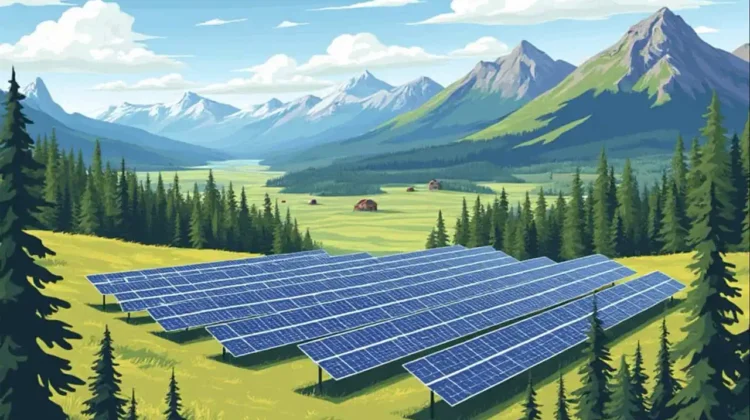
British Columbia is home to more than 40 remote communities, primarily governed by First Nations, which remain unconnected to the province’s electricity grid.
Currently, most of these communities depend on diesel generators for electricity. But as Canada reaches for lofty “Net Zero” goals, regional government is hoping to change that.
Seven remote First Nations in B.C. are getting support this month from the Province to launch local clean-energy projects focused on lowering emissions and cutting energy costs.
The support hails from B.C.’s Community Energy Diesel Reduction program, which has provided nearly $13 million to more than two dozen clean-energy projects since launching in 2022.
“We are committed to our goal of reducing diesel consumption in remote off-grid communities by supporting capacity building and forming strategic partnerships,” says Adrian Dix, who functions as Minister of Energy and Climate Solutions, with a goal to “work together to build cleaner and healthier communities for people living in BC’s most remote places.”
The Province’s CEDR program is providing almost $8M to these seven communities, who will each embark on a project toward reducing their reliance on diesel for energy. The funds will be administered by administered by the New Relationship Trust.
“This flexible-funding program continues to transform energy systems in remote and First Nation communities in BC,” said Walter Schneider, chief executive officer of New Relationship, adding that “We are proud to partner in the successful development of decarbonization projects that advance each community’s distinct needs and goals.”
The clean-energy projects vary in size and scope, and include hydro, solar, biomass, and hydrogen.
For example, the Gitga’at First Nation is receiving $2M to develop a run-of-lake 948-kilowatt hydroelectric generation facility that is expected to displace up to 95% of diesel usage, while the Ulkatcho First Nation will receive $1M to support the creation of a 3.8-megawatt solar farm that is expected to reduce its community’s diesel usage by up to 64%.
“Ulkatcho Energy Corporation’s solar farm project marks a new path for Ulkatcho, displacing a significant amount of diesel use in the community, while creating lasting economic and environmental benefits,” stated Stephen James, head of the Ulkatcho Group of Companies.
The Dease River First Nation will benefit $930,000 in support of a 550-kilowatt run-of-river hydro project in Good Hope Lake, while Heiltsuk First Nation is receiving $200,000 for a pre-feasibility study on the viability of producing hydrogen through electrolysis. Old Masset village council will receive $600,000 to install a biomass heating system for its local hospital and health centre.
The CEDR Program was developed in partnership with Coast Funds and the B.C. Ministry of Energy, Mines, and Low Carbon Innovation as part of the Ministry’s Remote Community Energy Strategy to achieve the CleanBC goal of reducing diesel electricity generation and heating in remote communities by 80% by 2030.
The next CEDR intake will be announced in 2025.


